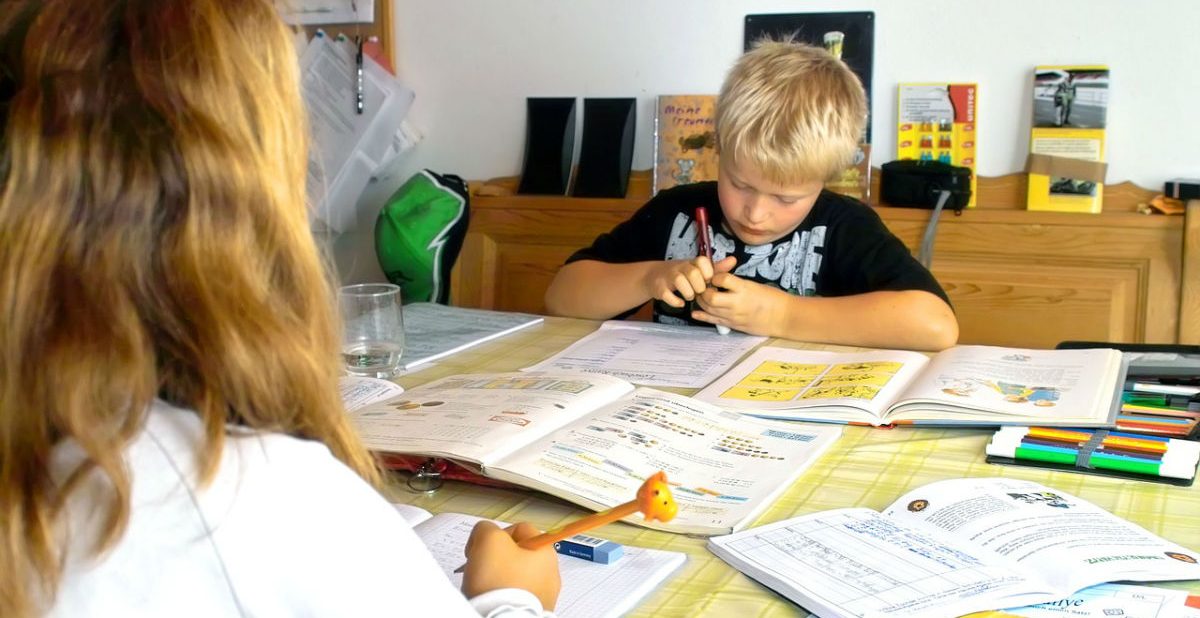
Essential facts about home-schooling in Australia
Is home schooling a suitable option for your child? What does it involve? We answer some commonly asked questions when it comes to this alternative style of education.
1. WHO CAN HOME SCHOOL IN AUSTRALIA AND IS IT LEGAL?
Home education is legal in all Australian states and territories. Children in Australia between the ages of 6 and 17 (Tasmania 5 to 16 years) must be either in school or registered to home school. Children under 17 who want to leave school must apply to home school or meet particular workforce or vocational education requirements. Each state and territory in Australia has its own set of legal requirements for home schooling.
2. WHY WOULD IT BE AN OPTION FOR CHILDREN WITH DISABILITIES?
There may be a number of reasons you consider home schooling. Your child may need to be home-based because of medical or behavioural reasons or you may be finding that despite the best intents of the school, a ‘one size fits all’ learning environment simply does not suit your child and the way they learn. With home schooling you can tailor learning to suit your child. Stepping away from a textbook and the ‘test’ mentality can stimulate many different types of learning. Different home schooling methods can work well for children with dyslexia, sensory processing disorder, autism, bipolar and ADHD, among other diagnoses.
There are many resources and tips available to help you develop a curriculum for your child. Homeschooling Downunder (www. homeschoolingdownunder.com) provides helpful resources and suggestions such as:
- Copywork – can often take the stress out of handwriting because children only need to concentrate on forming letters and not what to write. Printing on cream or soft pastel paper can help children with dyslexia.
- Reading Aloud Living books – can help children get the big picture even if they can’t read at grade level.
- Oral narrations – can test comprehension and help memory without a written component.
- Nature study – a photographic nature journal doesn’t require fine motor skills.
- Short lessons help children with short attention spans.
3. IS THERE A HOME SCHOOL CURRICULUM? WHAT ARE THE DIFFERENT METHODS?
There is no set home school curriculum. The state or territory you live in may stipulate specific requirements. In Victoria, you must submit a learning plan before you can be approved to home school your child. Samples are available on the VRQA website – a www.vrqa.vic.gov.au
Styles of home education vary greatly, from formal to informal and will depend on the home educating experience of the parent and the children. Support organisation, the Home Education Association (HEA) – www.hea.edu.au does not produce education materials but has programming aids available for purchase to help parents.
According to Homeschooling Downunder, some popular methods include:
Eclectic home school method – blends different styles of home school philosophies and allows maximum flexibility.
Traditional home school method – School At Home – uses workbooks and textbooks to create a school-like environment at home.
Charlotte Mason method – with a motto of ‘education is an atmosphere’, this method focuses on using living books, observing nature and developing a child’s mind and memory.
Classical home school method – an academic method based on the great books in literature. It incorporates a ‘Grammar Stage’, ‘Logic Stage’ and ‘Rhetoric Stage’ to support child development.
Natural learning – uses natural curiosity and learning opportunity and works with the maturity and evolution of the child.
Unschooling – this lifestyle-based approach has no curriculum, timetables, schedules or school materials, but supports an individual child’s passions and desire to learn.
Unit study learning – a theme-based, holistic teaching method incorporating several subjects and learning styles.
There are many other methods, such as the Montessori method, the Steiner method and the Robinson method. You don’t need to choose just one style, as many ideas overlap.
4. WHAT ARE THE BENEFITS OF HOME SCHOOLING?
Home schooling has many benefits such as:
- Offering individualised attention in a safe learning environment
- A tailored, flexible learning experience
- The opportunity to broaden the educational experience, through excursions and volunteering
- Exposing children to subject areas they would not otherwise be able to access
- Providing an alternative option for students who don’t ‘fit’ the school mould, due to a diagnosis, bullying or other issues
- Helping develop independent thinking and learning skills, and self-management
- Increasing sociability with mixed-aged people
5. ARE THERE ANY DRAWBACKS?
Common arguments against home schooling are that:
- It isolates children
- Children are usually taught by someone who is not trained to teach
- It has a financial impact on the household with one parent out of paid work
- It can limit educational attainment
But, the research on home schooling is neutral, with home schooled children appearing to do neither worse nor better than those attending regular school. Additionally, many home school parents are trained teachers. However, many home school parents exclude their children from standardised tests, such as NAPLAN, so the data is inconclusive.
6. HOW CAN PARENTS DEAL WITH THE SOCIAL ASPECT OF BEING TAUGHT AT HOME?
One way to make sure your children are well- socialised is to involve them in extra-curricular activities such as sport or music outside of school hours. Many families also opt to send their children into formal education for the senior years of schooling, especially if students want to complete their senior secondary certificate. Children can also interact with their local community in a real-world context, and direct and extended family.
7. WHERE SHOULD PARENTS WHO ARE THINKING ABOUT HOME SCHOOLING BEGIN?
When considering home schooling, you need to find out about how to develop a curriculum and also the legal requirements.
Homeschooling Downunder’s FAQ page – www.homeschoolingdownunder.com/how-to-start- homeschooling is a great place to start, with answers to many commonly asked questions. HEA also has an extensive FAQ section.
The consensus is that home schooling should be different from school. Parents should teach responsively, using their child’s cues and interests to guide their study. As children grow older, they develop better reasoning skills. They may be able to take in certain information better at a different stage than when it appears in the school curriculum. Children can also develop their individual personality and unique interests without succumbing to peer pressure. Home schooling should encourage children to pursue their strengths and overcome their weaknesses.
8. CAN PARENTS TEACH, OR DO THEY NEED TO EMPLOY PROFESSIONALS?
It can help if you’re a qualified teacher, but you don’t need to be to provide home education. You just need a genuine interest in and commitment to providing your child with a quality home schooling experience. If you are interested in home schooling your child, you must register with the appropriate authority in your state or territory.
9. WHAT RESOURCES ARE OUT THERE TO HELP?
Homeschooling Downunder offers a detailed list of resources, to help new and established home schooling families in Australia. Some of these include:
• My Homeschool Subscription – a virtual staffroom for home educators, with a community forum, enrichment courses for parent teachers and other resources.
• Home Education Network Victoria – the Home Education Network Inc. (HEN) is the largest alternative education support group in Victoria.
• SHEN – Sydney Home Education Network and Shen Facebook Group – for Sydney families looking for home school events and connection.
• Home Based Learning Network Western Australia – HBLN – the Home-Based Learning Network (HBLN) is for home-based learners in Western Australia.
Aussie Educator also has a comprehensive list of resources on their website, including many for families with special needs children.
10. WHAT COSTS ARE INVOLVED?
There are several costs to consider when looking into home schooling. Initial set up costs may include a computer, printer, internet access, an atlas, dictionary and workspace, plus stationery and art supplies. You will likely include extra-curricular activities as part of your child’s home schooling experience. Curriculum costs will vary, depending on the types of workbooks and memberships you choose to purchase. You can design your own curriculum based on a range of home school methods. Or, you can buy a custom designed option, supplemented by online programs in english, maths and science.
11. HOW ARE CHILDREN MEASURED OR MONITORED FOR LEARNING WHEN THEY’RE HOME SCHOOLED, ARE THEIR REGULATIONS TO FOLLOW?
There are regulations in place in all states which detail how progress is monitored and cover the extent to which a curriculum is to be followed. The requirements vary significantly from state to state. Aussie Educator has a comprehensive list of these requirements.







